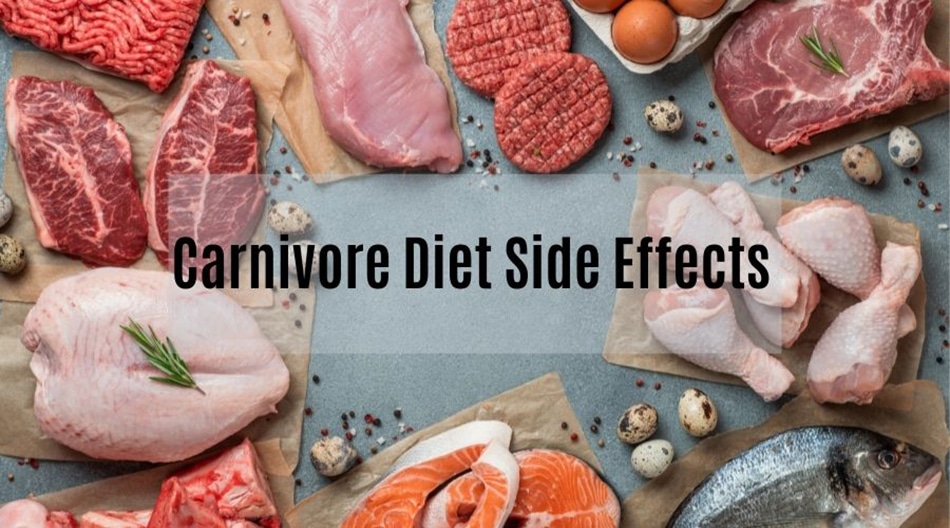Beginner's Guide to the Carnivore Diet

Carnivore diet refers to a diet that is made entirely of meat and animal products.
There are claims that the diet helps to aid in weight loss, blood sugar regulation, and improved mood, among other issues. The carnivore does away with all other foods leaving behind meat and animal products.
This means that the diet is low in vitamin C, folate and contains no fiber and requires one to be keen when undertaking it.
You may Also like
What is the Carnivore Diet?
The carnivore diet is, therefore, a restrictive diet that only includes fish, meat, and other animal foods, such as eggs. However, the proponents of the diets do suggest limiting dairy intake of foods that are low in lactose.
It is important to not that there are other high-intake diets that do not necesaroly scxlude the intake of cards. The aim of carnivore diet is to hae zero carbs.
How to Start the Carnivore Diet
Starting the diet is not hard. You just need to eliminate all the plans from your meals and stick to meat only. You may want to clear your pantry and fridge of anything that has carbs, as this minimizes the risk of you falling off the wagon.
Is Carnivore diet same as the Keto Diet?
The carnivore diet is very similar to the Atkins and ketogenic diets. The main difference is that the Keto and Atkins diets only limit carbohydrate intake, while the carnivore diet cuts out all carbohydrates and any other type of food, such as vegetables, grains, fruits, etc.
Foods to eat
Foods that are allowed in the diet include;
Beef
- Chuck roast
- Brisket
- Ground Beef
- Steaks such as T-bone
Chicken and Pork
- Rotisserie chicken
- Chicken breast, thighs, drumsticks, and wings
- Bacon
- Pork chops
- Pork ribs
- Pork shoulders
- Lamb
- Lamb shanks
- Lamb chops
- Ground Lamb
Seafood
- Crabs
- Clams
- Fish like salmon and mackerel
- Lobster
- Shrimp
- Mussels
- Scallops
Organ meats
- Kidneys
- Livers
- Tongue
- Feet
- Heart
- Cheeks
- Oxtail

Pros and Cons of the Carnivore Diet
It is important to note that every diet has pros and cons. Also, some diets work better for some bodies than others. Therefore, be mindful of your lifestyle and tastes when you choose a diet to adhere to.
Benefits of the Carnivore Diet
Several studies have sought to understand the benefits of the carnivore diet. A study by Lennerz et al. (2021) looked at the behavioral characteristics and self-reported health status among 2029 adults consuming a “Carnivore diet.” The study indicated that the adults who consumed a carnivore diet experienced few adverse effects, and they reported health benefits and high satisfaction.
- Low-carb diet may improve blood sugar regulations.
Low-carb diets have proved to have many benefits, for instance, for people suffering from type 2 diabetes. A study conducted by Meng et al. (2017) indicates that low-carbohydrate diet intervention had a positive effect on HbA1c, triglycerides, and HDL cholesterol concentrations.
2. The Carnivore diet is also likely to aid in weight loss.
This is because the diet eliminates a lot of the food and beverages that contribute to weight gain. The carnivore diet is low in carb-rich food and high in protein and therefore has a high probability of promoting weight loss. The participants in a study conducted by Lennerz et al (2021) reported a key reduction in their body mass index (BMI).
3. Improving Gut Health
Anecdotal reports have shown that the carnivore diet can improve gut health by relieving symptoms and also potentially curing chronic conditions
4. Autoimmune disease management
The carnivore diet has also been cited as having the benefit of helping manage autoimmune disease.
5. Clearer Mind
A lot of people taking the carnivore diet have claimed that it sharpens their minds.
6. Heart Health
Meat is a rich source of vitamin K2 and this has been shown to lower the calcification of arteries which plays an important role when it comes to the development of cardiovascular disease (Yu et al., 2020).
7. Decreasing inflammation
Some studies have shown that a low-carb diet does help to prevent the composition of inflammation because one has to cut out of all the foods that cause inflammation.

Cons
While the diet does have some upside it also has some cons.
1. Expensive
Proteins are expensive compared to other foods, especially for a diet that revolves around different types of meat. Maintaining the diet can therefore be challenging.
2. High in fat. cholesterol, and sodium
since the diet is made up of a lot of animal foods, it is high in saturated fats and cholesterol. Processed meats, such as bacon and breakfast meats are rich in sodium.
3. Lack of other micronutrients
Due to the restrictions of the diet one is likely to miss out on other important nutrients. For instance, the diet eliminated fruits, legumes, vegetables, and whole grains which are a source of a lot of vitamins and minerals.
4. Fails to provide fiber
Fiber is important because it promotes gut health and healthy bowel movements, it is only found in plant foods. Due to the lack of fiber, the animal diet may result in constipation.
Is the Carnivore diet safe?
While the carnivore diet is unlikely to harm you if you follow it for a shorter period and are healthy, it does raise issues due to its restrictiveness and shortage of fiber intake.
This diet is not recommended for those who are breastfeeding and those who are pregnant.
Sources
- Lennerz, B. S., Mey, J. T., Henn, O. H., & Ludwig, D. S. (2021). Behavioral characteristics and self-reported health status among 2029 adults consuming a “carnivore diet”. Current developments in nutrition, 5(12), nzab133.
- Meng, Y., Bai, H., Wang, S., Li, Z., Wang, Q., & Chen, L. (2017). Efficacy of low carbohydrate diet for type 2 diabetes mellitus management: a systematic review and meta-analysis of randomized controlled trials. Diabetes research and clinical practice, 131, 124-131.
- Yu, Z., Nan, F., Wang, L. Y., Jiang, H., Chen, W., & Jiang, Y. (2020). Effects of high-protein diet on glycemic control, insulin resistance and blood pressure in type 2 diabetes: A systematic review and meta-analysis of randomized controlled trials. Clinical nutrition (Edinburgh, Scotland), 39(6), 1724–1734. https://doi.org/10.1016/j.clnu.2019.08.008